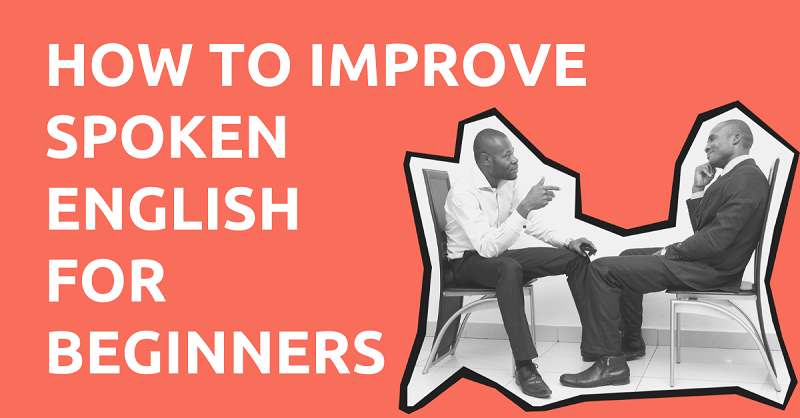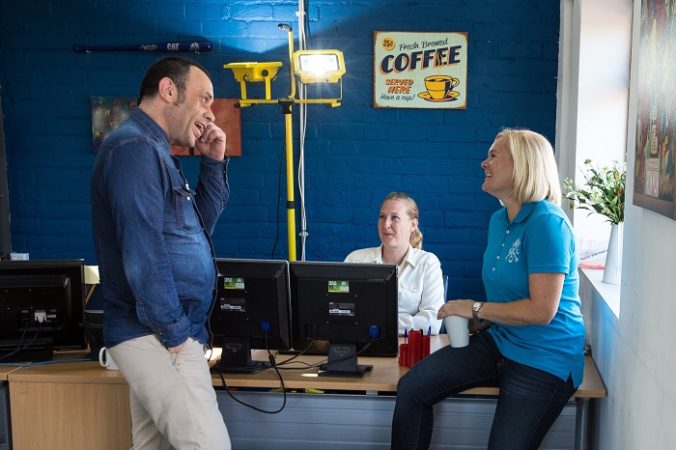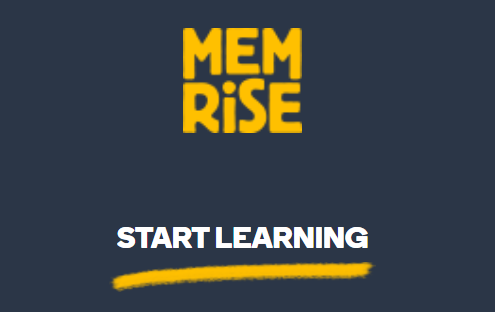
This article will take approximately 13 minutes to read. Don't have the time right now? No worries. Email the ad-free version of the article to yourself and read it later!
We learn English to better communicate with the people in the world around us, and be able to speak English is a important part of that communication process.
That said, the best way to improve your English speaking is to practice every day, because being shy is the biggest barrier to becoming a better speaker.
So don’t be afraid of making mistakes, as they help us improve and grow.
Here, then, is how you can improve your English speaking skills on your own, with the help of others, or through the use of technology and media.
Disclaimer: This article may include links to products or services offered by ExpatDen's partners, which give us commissions when you click on them. Although this may influence how they appear in the text, we only recommend solutions that we would use in your situation. Read more in our Advertising Disclosure.
Contents
Think in English Only
When you translate to English from your first language before speaking, you are taking time and making it harder to speak. This can make you feel like you are not good at the language.
Instead, you want English to come naturally so you feel more confident.
You can do this by firstly learning and using only short, simple sentences when you speak. People will easily understand you, and that is the most important thing, so do not worry.
Being understood is more important than perfection.
You can learn to make more complicated sentences by learning how to connect ideas and sentences together later.
This will come naturally to you anyway when you practice speaking, as conversations help you to hear and understand how connectors and more complicated sentences are made.
Use the Language in Everyday Situations
If you live in a native English-speaking country, then speak to the thousands of native English-speakers that you will meet — like co-workers, strangers, friends and their family members.
Use English in everyday real-life situations while shopping at the supermarket, asking for directions, going to the post office or elsewhere, or meeting new people.
This will help you to remember and learn important vocabulary by practicing it in real-world settings. It is surprising how many words you can quickly forget if you don’t keep using them.
Speaking in everyday situations helps to make sure that vocabulary sticks by seeing words used in real-life contexts.

If you are learning English in your own country, then you can improve your practice by meeting up with classmates in your free time.
Practice your speaking skills with your classmates in the real-world situations mentioned above, and speak in English only.
Asking your friend where something is or how to do something, and giving and receiving instructions to tasks in English, helps to improve your speaking skills.
It also helps to show you what you do not know, giving you the chance to research and find information to fill knowledge gaps.
Having a class full of friends is a great way to practice with many people and helps you to practice often as someone will always be available.
If you are a self-learner, then find a language partner. This could be through making friends with a native-English speaker in your country, finding a friend who also wants to learn English, or by using social media and technology.
The best thing about using real-life situations to practice your speaking skills is the non-verbal communication you can use when face-to-face with someone.
These non-verbal communication tools help to make the context of what you are trying to say clearer. Forgotten the name of something? Point to it and say, “We’d like this,” or, “What is this?”
If you have trouble telling directions, you can gesture or point.
Cannot remember the vocabulary for a feeling or action? Act it out or make a face to show it.
These ways of communicating help to make the context of what you are trying to say clearer, and helps the listener understand what you could not say.
Moreover, using non-verbal communication in real-life situations gives you chances to learn from mistakes.
If your speaking is not perfect, it is no longer a problem with non-verbal communication. Non-verbal communication helps you to learn.
The other person will be able to say the names of things, ask questions, and correct your English after the non-verbal communication helps their understanding.
This helps to make mistakes feel less serious by having different ways of making yourself understood, helping you to feel confident using English.
When you use English in real-life situations, you are also giving yourself the chance to learn in three different ways:
- through listening during conversations
- through visuals when you see something
- through doing by using non-verbal communication to make yourself clearer and by completing real-world tasks
By doing this, you are giving yourself more ways of learning and a better chance of remembering what you learn.
Remember, we learn better when what we have learned is meaningful to us. By putting yourself in real-world situations and completing real-world tasks, it becomes meaningful to you.
Use Technology to Find a Language Learning Community and Build Vocabulary
Technology can help you find language learning partners and join an online learning community.
Social media websites like Facebook have many groups for you to search for and join. Reddit also has subreddits like r/languagelearning, r/Language_Exchange, and r/EnglishLearning.
These online communities let you meet people who can help you with your speaking practice.
For example, r/Language_Exchange on Reddit is a great way to find a native-English speaker who can teach you English while you teach them your language, giving you both a chance to learn from a native speaker.

You can then add your new language exchange partner on social media and start speaking to them through voice notes or video calls.
This will give you the chance to be corrected, and can give you the chance to use non-verbal communication tools for better learning.
Online learning communities like r/languagelearning and r/EnglishLearning give you chats so that you can talk to everyone in the community.
You can also find new online learning resources. These resources may not let you practice speaking, but they will give you the chance to practice or learn useful vocabulary and phrases for real-world situations.
These communities also often have discords that you can join. This gives you more chances to talk to and have group video calls with your online learning community, as well as find more learning resources.

Free online learning apps like Memrise and Duolingo are also available.
These apps will not make you fluent in a language, but they will teach you useful vocabulary and phrases that you can practice before using them in real-world settings or in online community conversations.
They also often let you pick topics that you want to learn.
Other paid apps like italki also let you practice with a native speaker, and can be flexible in what you can learn.
Practice Your Motor Skills and the Other Language Skills
Just like learning a musical instrument or a new sport, you need to practice your motor skills through the movement of your lips and tongue to pronounce words and phrases.
This will help you to remember them and improves your pronunciation and ability to speak the language naturally.
Practice your motor skills at every chance. Use language learning apps, listen to them, and repeat what they say.
Look up words in online dictionaries, listen to the audio samples, and repeat the words. You can practice repeating words and sentences in the mirror and record your voice.
Listen to your voice, compare it to the app or dictionary, and look at the position of your lips and tongue in the mirror. This will give you the chance compare your voice to native-speakers. And experiment with lip and tongue positions through trial and error.
A language is not only one skill, however. To become better at English, you need to be able to read, write, listen to, and speak it.
Speaking and writing are production skills. We use them to make sentences and meaning. Reading and listening are receptive skills. We use them to understand a language.
By practicing receptive skills, we can improve production skills.
Watching English language movies or television gives you the chance to listen to real-world conversations in real-life settings.
This is a great way for you to hear the structure and use of everyday words and phrases. You will also see the characters emotions and non-verbal communication, which will give you a clearer understanding of meanings.
Apps like Netflix also allow you to use subtitles. This gives you even more context as you can read the sentences in your language and compare it to English.
Practicing listening this way also lets you rewind the movie, so you can listen to what has been said as many times as you like. This gives you the chance to repeat and speak sentences to practice your motor skills.

Extensions like “Language Reactor” for Google Chrome give you more learning features when watching a movie or TV series on Netflix.
With the extension, you can:
- have subtitles in both your language and English so that you can read the two languages at the same time;
- change the playback speed so that you can slow down the movie to make it easier for you to hear a phrase before you practice speaking it;
- use a pop-up dictionary so you can learn the meanings of important words and take notes of new vocabulary.
If you like to read, you can also read an online article, newspaper, magazine, or any other reading material out loud.
This is a great way for you to practice your pronunciation and speaking skills through practicing your motor skills.
Reading also helps you to learn how to use connectors to make more complicated sentences through seeing them used in context.
Whether it is repeating phrases from language learning apps or dictionaries, using online learning communities to record your voice or speak in video calls, repeating what you hear in movies, reading out loud, or practicing in front of the mirror, practicing your motor skills will make the language feel more natural and easier to speak for you.
Pick Topics, Resources, and Media that Interest You
Being a self-learner allows you to pick and choose topics that you find interesting.
When you are not interested in something, you will not learn well. This is because you do not care about the topic.
As mentioned earlier, we learn better when what we have learned is meaningful to us. By choosing your own topics, the levels of a chemical called dopamine in your brain increases. Dopamine makes your brain learn things easier.
Through being a self-learner, you can choose a television series, movie, book, article, newspaper, or any other learning resource that interests you.
When you are practicing in real-life situations, you can find fun activities like cooking courses, a hike, a debate between friends on a chosen topic, or anything else that you find interesting.
You can even use Memrise, Duolingo, italki, or other language apps to practice the vocabulary or sentence structures you will need before doing the activity.
These activities — and activities that complete a task — will increase your dopamine. This helps you to become a better learner.
Just make sure you use English with learning partners during these activities.
Now, on to You
The best way to practice your speaking is to jump in and do it.
Putting yourself in real-life situations lets you learn from others and use non-verbal communication in real-life settings for a better, more meaningful learning experience.
You can use language learning apps to build up simple sentences before using them in real-world situations to improve your speaking.
Also, Learn with as many people as you can, whether it is a native-speaker, friends, classmates, online learning communities, or language exchange partners, in as many ways as you can.
Remember, being a self-learner lets you have fun, so pick media, topics, and activities that interest you so that you can become a better learner.
And most importantly, practice speaking every day through these methods, and don’t forget to practice your motor skills.







